Shruti Indira Lakshminarayana in Bangalore
Mumbai-based P N Ramachandra won this year's prestigious National Award for the best children's film Putaani Party.
The director, who earlier won laurels for his Tulu film Suddha, talks about his award winning Kannada film and more.
Tell us about Putaani Party.
Putaani Party is a film that talks about children's right to self-determination and governance. It has been shot in Dharwad and mostly local actors have been used. It has been produced by the Children's Film Society of India (CFSI). It is my second feature film.
Why did you choose to make a film on this subject?
There have been attempts to empower children in matters relating to them the world over. The powerful Makkala Panchayat attempt at Kundapur is one example and I had even made a documentary on it. I had heard about the Bal Panchayat experiment in Rajasthan and children's parliament in Arnavayil village, Tamil Nadu as well.
In Brazil's Barra Mansa also, there is something called the Children's Participatory Budget Council in their municipality. Here elected children are allocated a budget where they get to decide on which areas they will spend it on. I felt the need for the spirit of these initiatives to be on celluloid and thus the film happened.
'I'm not sure if Taare Zameen Par is really a children's film'
Image: A scene from Putaani PartyDo you think children should be introduced to politics?
Whether one wants or not, a child is made aware of politics at a very young age. What is important is the kind of politics they are exposed to.
How do you plan to take this film to the children?
CFSI is the distributor and interested people can obtain copies of the film from them. From my side, I am letting people know about the film through the Internet. I am also working on sending this film to various film festivals.
What is your take on the political system in India?
Democracy is the best we have. But what needs to be seen is whether governance is reaching the grassroot level. We need to have structures that ensure this process. Putaani Party deals with one such structure that involves children.
What are the kinds of films that need to be made for children?
Take Taare Zameen Par for instance. While I'm not sure if it is really a children's film, it is considered so. I find that the structure, style and narration of the film are fine tuned to the star who is acting in it rather than the child. The mainstream rarely gets into the children's film category as its a risky proposition financially.
Therefore it has to piggy bank on a star, an animal, a supernatural element or a mythological character. If I want to make a feature film on a child desperate to prepare and eat gobi manchurian -- the dish that he likes -- I find it difficult to find private financiers.
'I decided to get into film-making after I saw Girish's Gatashraddha'
Image: A scene from Putaani PartyWhat are the aspects that one needs to consider while making a children's film?
My mantra for any film is to keep it simple, more so in the case of children's film.
Are you satisfied with the kind of support children's films are receiving in the country?
For starters, a separate National Award for children's films is encouraging. Also Karnataka government's initiative of giving subsidies to childrens' films is a one of its kind in the country. Further CFSI has been consistently producing children's films over the years. They have also been dubbing them in various languages.
There is freedom in the usage of style and treatment that a director enjoys at CFSI. It also holds film festivals in association with local bodies for children. Whether these films have reached a large section of children in India is a different question. There is reluctance on the part of the mainstream film distribution system to pick up films from CFSI and vice versa. This is very sad because the quality of some of the CFSI films is top class.
You have won several awards. What do these awards mean to you?
An honour means acceptance. And any sort of acceptance is satisfying.
How does it feel to win an award alongside Girish Kasarvalli, whose film courses you have attended?
I decided to get into film-making after I saw Girish's Gatashraddha. He has been consistently making films of his choice. His commitment towards the medium is unquestionable. People trust him to deliver. At some point in my life, I would like to achieve this status. He is an inspiration to many of us.
'I prefer making films on my own strength'
Image: On the sets of Putaani PartyWho are the film-makers who have inspired you?
Like I said Girish Kasaravalli. Then there is Aravindan, Bunuel and Kundan Shah.
Have you ever considered making a mainstream commercial film?
I believe that there are two ways of making a film -- either make films on one's own strength or piggy bank on a popular name and thereby get finance to make the film. I prefer the former for there is little room for maneuvering when compared to the latter.
What do you think of Kannada films, both commercial and art, that are being made these days?
Of the few recent mainstream Kannada films that I have seen, I liked Chaitaniya's crisp narration in Aa Dinagalu. Girish's Kanasemba Kudureyanneri also impressed me with its non-linear structure. Only Girish could have pulled off such a film. Also although I haven't seen Vimukthi, I admire Sheshadri for having attempted a project like that.
Do you feel many films are heavy on dialogues?
Some are. But communication mostly happens through dialogues so I see no problem. Putaani Party was also criticised for being dialogue heavy, but I felt those many dialogues were required as it was a film that showcased children initiating a dialogue about issues and trying to find their own voice.
Also I have ensured that the dialogues are not the kind that adults would mouth. So I see no problem there. Having said all this, I am also not for including dialogues just to create a dramatic edge so as to gain more applause.
Did you always want to be a director?
Yes. Right from college days in Udupi, I have been associated with theatre. I there on went to study in Pune film institute and here I am today.
'I will direct a film on the agricultural situation in India'
Image: On the sets of Putaani PartyWhat are your future projects?
Two feature length documentaries which have been in the making for eight-nine years are now on the verge of completion. Meeyaru House is one of them. It is on the demolition of an ancient house and the memories and lifestyle that get buried with it.
The second one is Mumbai Montage. It is a montage of various personalities who have migrated to Mumbai from Karnataka. From former defense minister George Fernandes to a semi-educated rag picker, many have been featured here.
Besides these I am also collaborating on the screenplay of a film being made on the agricultural situation in India. I will also be directing it.
How should aspiring directors prepare themselves?
I guess they should do what Sudhir Mishra calls riyaz. Make your film even while you are not making it!

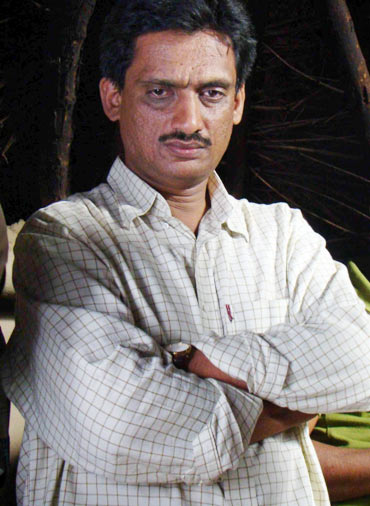
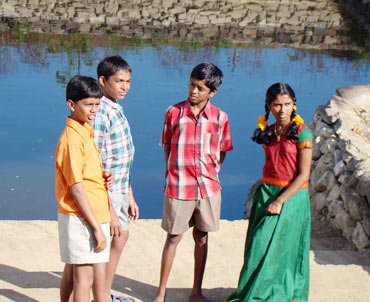
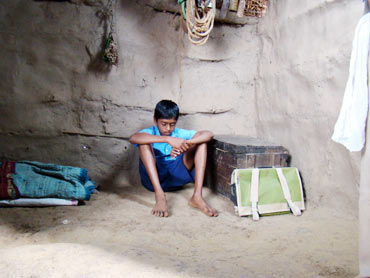
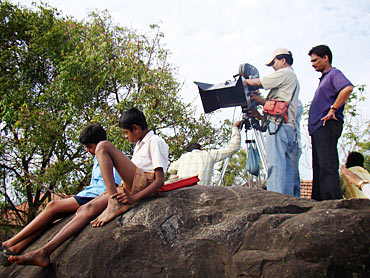
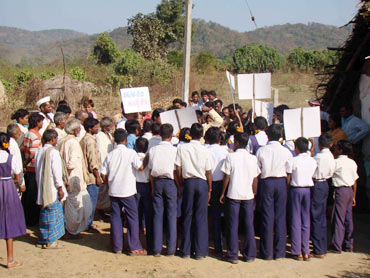
Comment
article